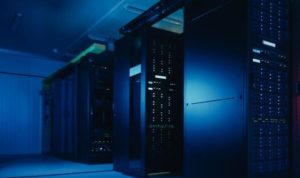If you’re interested in starting from scratch to learn quantum computing in India, you’ve come to the right place! In this blog post, I’ll provide you with some helpful advice and resources on how to get started with quantum computing, as well as information on prerequisites, courses, online and offline learning environments, institutes that offer quantum education, career opportunities, the future of quantum computing, and languages used in the field. Let’s get started!
The topic of quantum computing is exciting and fast developing, with the potential to transform many branches of science and technology. Information can be processed by quantum computers in ways that are not feasible for classical computers by using the concepts of quantum physics. Certain problems, such as factoring big numbers, simulating quantum systems, optimising intricate functions, and cracking encryption methods, can be solved by quantum computers far more quickly than by classical computers.
Having a strong foundation in physics and maths is the first thing you should do. Proficiency in complex numbers, probability, mathematics, linear algebra, and fundamental quantum physics are prerequisites for quantum computing. Although you don’t have to be an expert on these subjects, you should feel at ease discussing them.
The next thing you need to do is to choose a suitable course or program that covers the fundamentals of quantum computing. There are many options available online and offline for learners of different levels and backgrounds.
Here are some online courses you can opt for:
– Michael Nielsen’s Quantum Computing for the Determined on YouTube: This is a collection of 22 quick films that provide a straightforward and understandable introduction to the fundamental ideas and methods of quantum computing.
– Umesh Vazirani’s Quantum Computation on edX: The course addresses the mathematical underpinnings and applications of quantum computing and is self-paced. It also offers tasks in programming with Qiskit, a quantum computing environment.
– Coursera offers IBM’s Quantum Computing Fundamentals: The fundamentals of quantum computing and the use of IBM’s quantum devices and simulators are covered in this approachable course for beginners. It also consists of interactive labs with Qiskit.
– Quantum Computing by Microsoft on Microsoft Learn: This is a learning path that consists of several modules that explain the principles and practice of quantum computing. It also includes tutorials on how to use Q#, a programming language for quantum computing.
Some of the offline courses and programs that are offered by various institutes in India are:
– IIT Madras’ M.Tech in Quantum Technology programme: Students enrolled in this two-year master’s programme will learn about the theory and applications of quantum technology. Quantum information theory, quantum algorithms, quantum error correction, quantum cryptography, and quantum machine learning are among the subjects covered in the programme.
– IISc Bangalore’s 6-month Certificate Programme in Quantum Computing: This programme gives students an overview of the fundamentals and contemporary developments in quantum computing. Qubits, gates, circuits, algorithms, complexity, cryptography, error correction, and hardware platforms are among the subjects covered in the course.
– CDAC’s Quantum Computing Diploma Pune: Students enrolled in this one-year diploma programme learn how to build and construct quantum hardware and software. Quantum logic, quantum programming languages, quantum simulators, quantum architectures, and quantum applications are among the subjects covered in the curriculum.
Getting some practical experience with creating and executing quantum programmes is one of the most crucial parts of learning quantum computing. You must master a few programming languages and frameworks that are appropriate for quantum computing in order to accomplish this. Several widely used languages and frameworks include:
Qiskit:
IBM’s cloud-based quantum devices and simulators can be programmed and operated using quantum programmes using the open-source Qiskit framework. Python is a high-level and popular programming language. With Qiskit, you can develop quantum programmes using Python. Additionally, Qiskit offers tools and libraries for creating quantum applications in fields including finance, chemistry, machine learning, and optimisation.
Q#:
Quantum algorithms can be expressed using a domain-specific programming language called Q#. Microsoft’s Quantum Development Kit (QDK), which comes with a host programme interface, debugger, resource estimator, and simulator, is intended to be used with Q#. It is possible to combine Q# with Jupyter notebooks, C#, and Python, among other languages.
Cirq:
For writing and executing quantum programmes on Google’s cloud-based quantum processors and simulators, utilise the open-source Cirq framework. Python may be used to develop quantum programmes with Cirq. In addition, Cirq offers capabilities including circuit optimisation, noise models, visualisation, and framework interoperability.
You can further develop your abilities and expertise in this area by working on projects or conducting research after completing a course or programme in quantum computing and learning a few programming languages and frameworks. In India, there are plenty of chances for professionals and students to participate in quantum computing research and initiatives.
Institutes in India offering Phd/Pre-PhD in quantum computing:
– Tata Institute of Fundamental Research (TIFR): One of the top research centres in India, TIFR carries out studies in computer science, physics, mathematics, chemistry, and biology. Theoretical and experimental aspects of quantum information processing are the focus of the Quantum Information and Computation Group at TIFR.
– Harishchandra Research Institutes (HRI): Numerous groups at IISER focus on various facets of quantum computing, including quantum metrology, quantum optics, quantum information theory, quantum algorithms, and quantum cryptography.
– Centre for Development of Advanced Computing (CDAC): CDAC is an autonomous scientific society under the Ministry of Electronics and Information Technology that develops and deploys IT solutions for various sectors. CDAC has a Quantum Computing Group that works on developing software tools and platforms for quantum computing.
– IISC Bangalore: Indian Institute of Science (IISc) is a premier research institution in India with a strong focus on various scientific and technological disciplines. Quantum computation is an emerging and interdisciplinary field that combines physics, computer science, and engineering.
You can learn more about the possibilities for a career in quantum computing by working on projects or conducting research in this area. The multidisciplinary and developing subject of quantum computing presents numerous opportunities for impact and innovation.
The following are some industries that stand to gain from quantum computing:
– Banking and finance: The security, precision, and speed of financial services and transactions can all be enhanced by quantum computing. Quantum computing, for instance, can be used to mimic market situations, improve portfolio management, and crack encryption techniques.
– Biotechnology and healthcare: The use of quantum computing can improve disease and disorder detection, treatment, and prevention. Quantum computing, for instance, can be used to simulate biological systems, analyse genomic data, and create new medications.
– Energy and the environment: Energy production, delivery, and consumption may all be optimised with the aid of quantum computing. Quantum computing, for instance, can aid in the development of novel materials, enhanced solar cells, and decreased greenhouse gas emissions.
– Defence and security: The capabilities and effectiveness of defence and security systems can be improved with the use of quantum computing. Quantum computing, for instance, can be used to encrypt data and identify stealth planes.
Quantum computing has a bright and hopeful future. The subject of quantum computing is predicted to experience exponential growth in the upcoming years due to increased research and development. It is also anticipated that quantum computing would open up new computational and communication paradigms and avenues. In addition to being a scientific and technological challenge, quantum computing presents a cultural and social opportunity.
So, what are you waiting for? Start your quantum journey today and join the quantum revolution!




